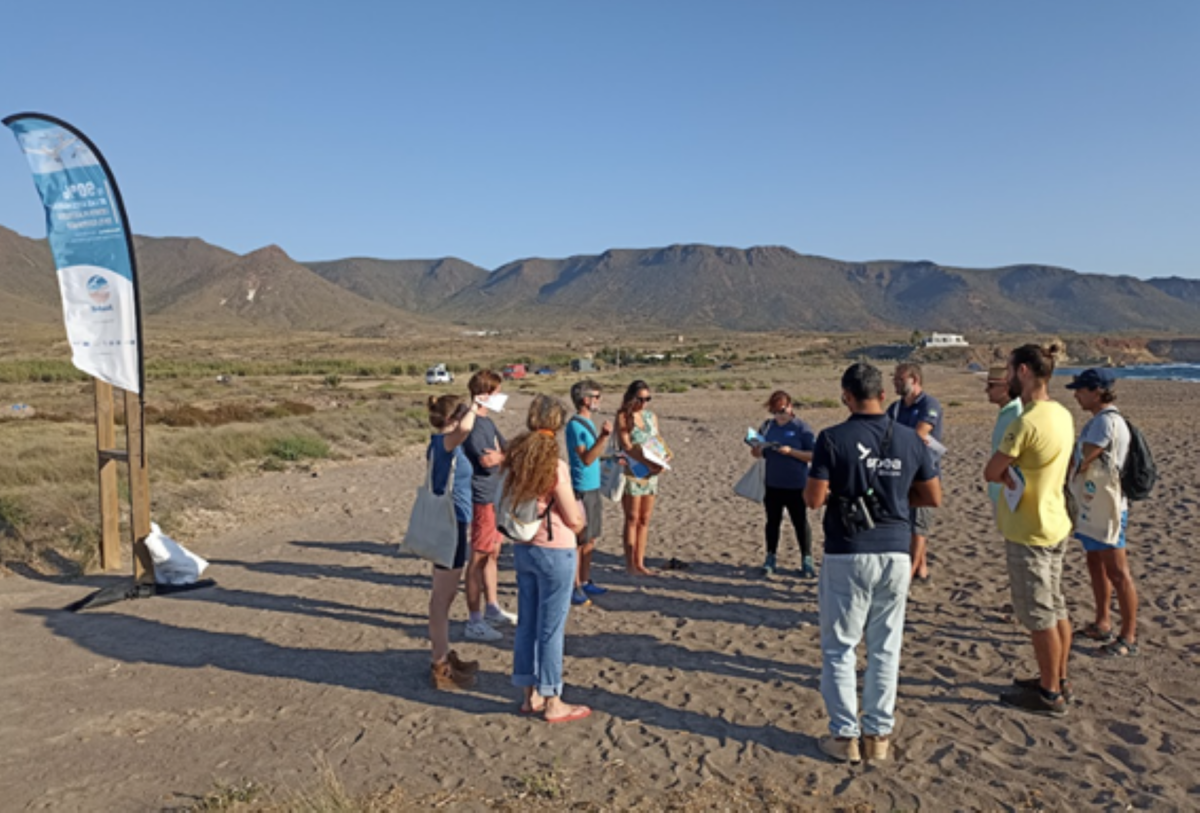Throughout the months of November and December 2023, the various stakeholders of the LIFE SeaBiL project conducted online training sessions aimed at presenting the guide for responsible beach cleaning and its risk map, the ICAO application for monitoring stranded seabirds, and the MARNOBA application for tracking marine litter.
Through these different tools, LIFE SeaBiL aims to better understand the impact of marine litter on ecosystems and to guide waste collections to be carried out in an environmentally friendly manner.
For example, the Kentish Plover nests on almost all pilot sites of the project. This small shorebird reproduces from mid-March to late August each year, and its eggs are laid directly on the sand, with their cream/white color camouflaging them from predators but making them vulnerable to human trampling. The goal of the guide for responsible beach cleaning is to train collection organizers and volunteers in conducting reasoned waste collections, avoiding the Kentish Plover’s breeding period and taking into account the dune ecosystems of the beach.

The ICAO and MARNOBA applications, on the other hand, allow for the tracking of stranded seabirds and marine litter, respectively. Usable during waste collection activities, they provide valuable data on plastic pollution, its impact, and its origin to the SeaBiL project team and, more broadly, to the European OSPAR monitoring program.
The target audience for these training sessions includes waste collection organizers to raise awareness about beach ecosystems, managers of protected areas, and the general public. In total, nearly 140 participants have attended these sessions, with 45 individuals in France, 40 in Portugal, and 54 in Spain. Recordings are directly accessible on the LIFE SeaBiL website (video at the bottom of the page).
In addition to these online training sessions, physical training, including waste collection activities, takes place throughout the project.